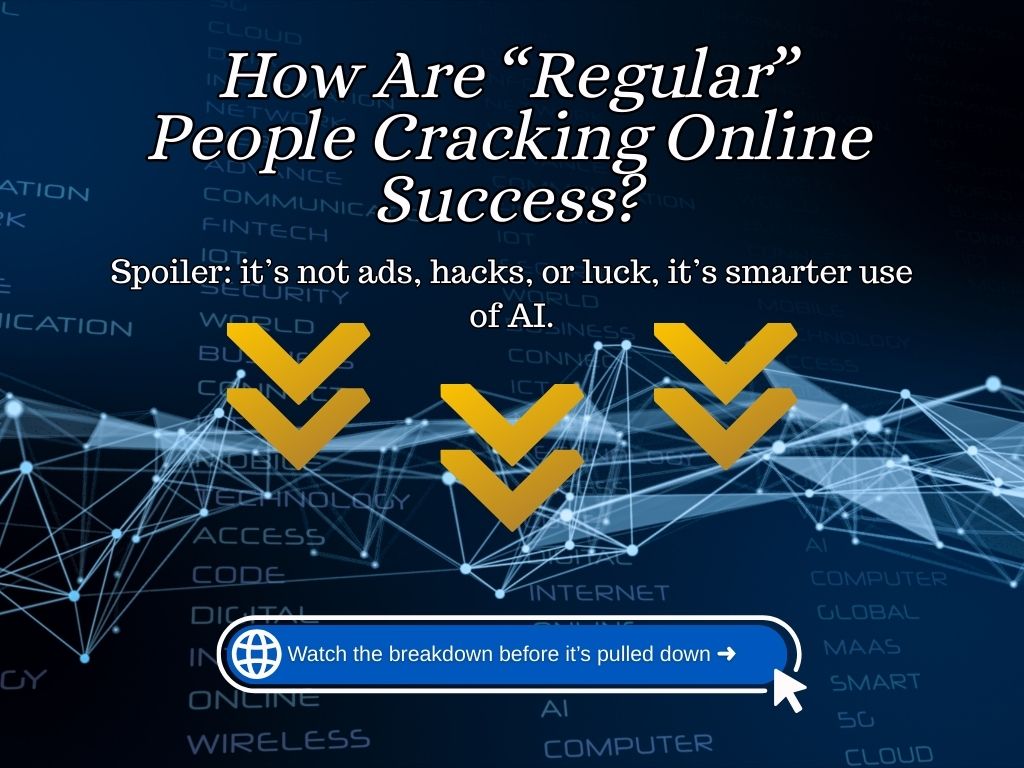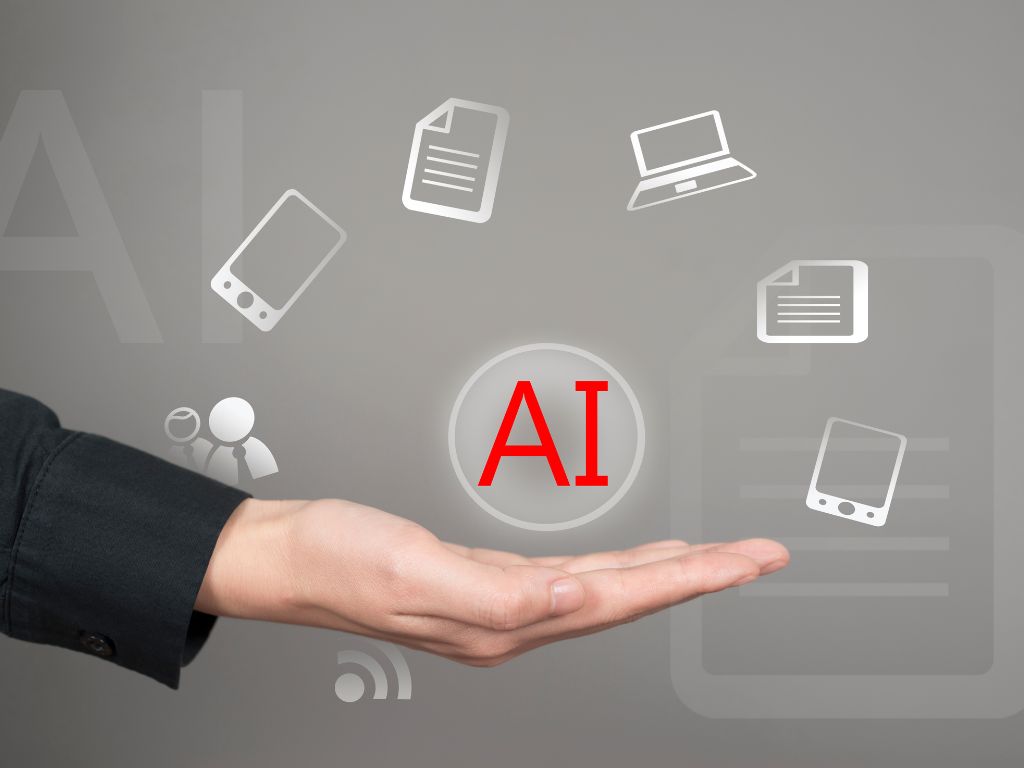Introduction: Why AI Marketing Tools Are Taking Over in 2025
Marketing in 2025 moves fast. Customers expect personalized experiences, campaigns need to be data-driven, and competition is tougher than ever. Ai marketing tools make this possible without adding extra hours to your workday.
These tools can write content, schedule posts, track performance, analyze customer data, and even predict which leads are most likely to convert. They’re designed to save you time, improve your results, and give you an edge whether you’re running a small business, managing an agency, selling online, or building your personal brand.
In this guide, you’ll discover the best Ai marketing tools available right now. You’ll learn what they do, how they can fit into your workflow, and which ones offer the biggest return on your investment. By the end, you’ll know exactly which AI tools to try first and how to start using them for real results.
AI Marketing Tools in 2025 — What Matters
- AI isn’t optional: it’s the backbone of modern marketing strategies in 2025.
- Time savings add up: automation handles content creation, social posting, email sends, and tracking saving hours each week.
- Personalization at scale: tailor experiences for thousands of customers automatically.
- Proven results: teams using AI report higher conversions and even doubled organic traffic in real-world cases.
- Start small, then scale: pick one tool that solves your most urgent problem, prove the ROI, and expand from there.

What Are AI Marketing Tools and Why They Matter
AI marketing tools are software platforms or applications that use artificial intelligence to help you plan, execute, and optimize marketing tasks.
Instead of manually writing every piece of copy, analyzing endless spreadsheets, or guessing which audience to target, these tools process data, learn patterns, and make intelligent recommendations or take action for you.
Key benefits of AI marketing tools:
- Save time: Automate repetitive tasks like posting to social media, sending follow-up emails, or generating reports.
- Improve accuracy: AI analyzes data faster and more thoroughly than a human, helping you make informed decisions.
- Personalize at scale: Send tailored messages to thousands of people without writing each one individually.
- Boost ROI: By targeting the right audience with the right message at the right time, AI helps you get more value from your marketing budget.
- Stay competitive: As more businesses adopt AI, using these tools is becoming essential for keeping up or pulling ahead.
Ai marketing tools aren’t just for tech experts or big companies. Today’s platforms are designed to be user-friendly, with templates, drag-and-drop builders, and simple dashboards that make advanced marketing possible for anyone.

⚖️ Pros & Cons of AI Marketing Tools
Like any powerful technology, AI marketing tools come with both strengths and limitations. To decide if they’re the right fit for your business, it’s worth looking at the advantages and potential drawbacks side by side.
| Pros ✅ | Cons ❌ |
|---|---|
| Automates repetitive tasks, saving hours every week | Risk of over-reliance → content may feel robotic if not edited |
| Personalizes campaigns at scale (emails, ads, product recs) | Some tools require a learning curve or setup time |
| Improves accuracy by analyzing data faster than humans | Quality depends on the data you feed it (bad data = bad outputs) |
| Boosts ROI with smarter targeting & predictions | Subscription costs can add up if you stack too many tools |
| Scales easily as your business grows | Not a full replacement for human creativity & strategy |
| Accessible to small businesses (free & low-cost options exist) | Data privacy & compliance concerns with some providers |
✅ The takeaway? AI marketing tools can deliver big wins but only if you use them strategically. Think of them as a co-pilot: they handle the heavy lifting, while you guide the creativity, vision, and brand voice.
How to Choose the Right AI Marketing Tool for Your Needs
With so many Ai marketing tools available, picking the right one can feel overwhelming. The key is to start with your goals, not the features list. Ask yourself: What do I want this tool to help me achieve?
Step 1: Identify Your Primary Goal
- Do you want to automate social media posting?
- Improve email marketing performance?
- Create content faster?
- Analyze data and optimize ad targeting?
Knowing your main objective will narrow your choices instantly.
Step 2: Match the Tool to Your Workflow
Choose a tool that integrates easily with the platforms you already use: your CRM, social channels, email service, or e-commerce store. The smoother the integration, the less manual work you’ll have later.
Step 3: Consider Your Budget
AI marketing tools range from free options with basic features to premium platforms costing hundreds per month. If you’re new to AI, start with free trials or lower-cost plans to see if the tool delivers value before committing.
Step 4: Check for Ease of Use
A powerful tool is only useful if you actually use it. Look for a clean dashboard, simple setup, and helpful tutorials. Avoid tools that require extensive training unless you have the time and resources to invest.
Step 5: Think About Scalability
If your business grows, will the tool grow with you? Some platforms are perfect for small teams but struggle with large-scale campaigns. Make sure your choice won’t limit you down the road.
Pro tip: Read recent reviews, watch short demos, and if possible test the tool with a small campaign before rolling it out across your entire marketing strategy.
| AI Tool & Category | Core Function | Key Performance Outcomes |
|---|---|---|
| Jasper (Content Creation) | Generates high-quality blog posts, ads, and marketing copy. |
|
| ActiveCampaign (Email Marketing) | Uses predictive AI to optimize email send times and journeys. |
|
| AdCreative.ai (Ad Targeting & Analytics) | Creates and scores ad creatives using AI insights. |
|
| Surfer SEO (SEO Optimization) | Provides data-driven SEO recommendations for content. |
|
| Clerk.io (E-commerce Personalization) | Recommends personalized products on e-commerce sites. |
|
| Ocoya (Social Media Automation) | Automates social content creation and scheduling. |
|

Best AI Marketing Tools for 2025
Here’s a curated list of AI marketing tools that are making a real impact in 2025, organized by category so you can find what fits your needs fastest.
For Social Media Automation
- Buffer with AI Assist – Schedules posts across multiple platforms, suggests optimal posting times, and now uses AI to help write engaging captions.
- Ocoya – Combines design, copywriting, and scheduling in one place, generating images and captions with AI for faster content creation.
For Email Marketing
- Mailchimp AI – Suggests subject lines, predicts the best send times, and segments audiences automatically for better open and click rates.
- ActiveCampaign with Predictive Sending – Uses AI to determine when each subscriber is most likely to engage, boosting campaign performance.
For Content Creation
- Jasper – Writes blog posts, ads, and social media copy in minutes, with tone and style controls to match your brand.
- Copy.ai – Great for generating quick marketing copy, product descriptions, and brainstorming ideas.
For Ad Targeting and Analytics
- AdCreative.ai – Creates high-performing ad creatives and suggests targeting options based on past campaign data.
- Revealbot – Automates ad optimization for Facebook, Instagram, and Google Ads, making changes in real time to improve ROI.
For SEO Optimization
- Surfer SEO – Uses AI to analyze top-ranking pages and suggests exactly how to improve your own content.
- NeuronWriter – Helps you create SEO-friendly content outlines and drafts based on keyword and competitor analysis.
For E-commerce Personalization
- Shopify Magic – AI-powered product descriptions and personalized product recommendations built into Shopify stores.
- Clerk.io – Delivers personalized shopping experiences by using AI to recommend products based on customer behavior.
Pro tip: You don’t need all of these. Start with one tool that solves your most urgent problem, learn it well, and then expand into other areas.
AI Marketing Tools at a Glance (2025)
| Category | Best Tools | What They Do | Why Use Them |
|---|---|---|---|
| Social Media Automation | Buffer w/ AI Assist, Ocoya | Automates posting, suggests captions, and finds best posting times. | Saves hours weekly, increases engagement, keeps content consistent. |
| Email Marketing | Mailchimp AI, ActiveCampaign | Predicts send times, segments audiences, personalizes campaigns. | Boosts open & click rates, automates follow-ups, improves conversions. |
| Content Creation | Jasper, Copy.ai | Writes blogs, ads, product descriptions, and social posts. | 3× faster production, consistent brand voice, scales content output. |
| Ad Targeting & Analytics | AdCreative.ai, Revealbot | Creates/scans ad creatives, optimizes campaigns in real time. | Improves ROI, predicts winning ads, reduces wasted ad spend. |
| SEO Optimization | Surfer SEO, NeuronWriter | Analyzes top-ranking pages, builds SEO-friendly outlines, suggests improvements. | Helps rank higher in Google, doubles organic traffic with data-driven guidance. |
| E-commerce Personalization | Shopify Magic, Clerk.io | Generates product descriptions & personalized product recommendations. | Increases average order value (AOV), boosts repeat purchases, enhances UX. |

Real-World Examples of AI in Marketing Success
Sometimes the best way to understand the power of AI marketing tools is to see them in action. Here are a few real-world examples of how businesses are using AI to save time, improve results, and grow faster.
Example 1: Small Business Social Media Growth
A local coffee shop used Ocoya to automate its social media content. By letting the AI generate captions, design graphics, and schedule posts, the owner cut content creation time from 6 hours a week to just 1 hour. Engagement went up 35% in three months, and foot traffic improved thanks to consistent posting.
Example 2: E-commerce Personalization That Drives Sales
An online clothing boutique integrated Clerk.io into its Shopify store. The AI analyzed customer browsing and purchase history to recommend personalized products. Within 60 days, the boutique saw a 22% increase in average order value and a 15% boost in repeat customers.
Example 3: Agency-Level Email Optimization
A small marketing agency adopted ActiveCampaign’s Predictive Sending for a client’s email campaigns. By automatically sending emails when each subscriber was most likely to open them, click rates rose by 40%, and conversions increased by 18% without increasing the email volume.
Example 4: SEO Wins for a Blogger
A food blogger used Surfer SEO to optimize existing recipes. The AI suggested specific keywords, headings, and content structure changes. As a result, organic traffic doubled in six months, and several recipes hit the top three Google search results.
Real-World AI Marketing Wins at a Glance
| Business Type | Tool Used | How They Used It | Result |
|---|---|---|---|
| Local Coffee Shop | Ocoya | Automated social posts with AI-generated captions & designs | 6 hrs → 1 hr weekly; +35% engagement; more foot traffic |
| Online Clothing Boutique | Clerk.io | Personalized product recommendations in Shopify store | +22% Avg Order Value; +15% repeat customers |
| Small Marketing Agency | ActiveCampaign | Predictive email sending for client campaigns | +40% click rates; +18% conversions |
| Food Blogger | Surfer SEO | Optimized old recipe posts with AI keyword + structure tips | Doubled organic traffic; top 3 Google rankings |

Common Mistakes to Avoid When Using AI Marketing Tools
AI marketing tools can transform your workflow, but they’re not magic buttons. Missteps can lead to wasted time, missed opportunities, or even damaged brand trust. Here are the pitfalls to watch for and how to avoid them.
Mistake #1: Over-Relying on Automation
AI can speed things up, but it’s not a replacement for your unique voice or brand values.
Fix: Use AI as a starting point, then review, edit, and add your personal touch to maintain authenticity.
Mistake #2: Choosing Tools Without a Clear Goal
Jumping on the latest AI trend without knowing your purpose can lead to unused subscriptions and poor results.
Fix: Identify your main marketing challenge first, then choose a tool that directly solves it.
Mistake #3: Ignoring Data and Feedback
AI gives suggestions, but if you never review performance data, you won’t know what’s working.
Fix: Track metrics like click-through rates, conversions, and ROI, and adjust your strategy based on the results.
Mistake #4: Neglecting the Human Touch in Customer Interactions
Some brands let AI handle all communications, which can feel cold or robotic to customers.
Fix: Balance automation with genuine human interaction especially in customer support, personalized outreach, and storytelling.
Mistake #5: Not Keeping Tools Updated or Integrated
Outdated AI tools or poor integrations can cause inefficiencies or even errors in campaigns.
Fix: Regularly update your software and ensure it works seamlessly with the other platforms you use.
Pro tip: The most successful marketers treat AI as a co-pilot, not a driver. Let it handle the heavy lifting, but guide the strategy yourself.
Mistakes to Avoid with AI Marketing Tools
| Mistake | Why It Hurts | Fix / Best Practice |
|---|---|---|
| Over-relying on automation | Content feels robotic, loses authenticity | Always add brand voice + edit AI drafts |
| Choosing tools without clear goals | Leads to unused subscriptions and wasted budget | Define 1–2 key marketing goals before choosing tools |
| Ignoring performance data | You won’t know if AI is improving results | Track CTR, conversions, ROI regularly |
| Neglecting the human touch | Customers feel disconnected, lowers trust | Balance AI automation with genuine human interactions |
| Not updating or integrating tools | Outdated software causes inefficiencies or errors | Keep tools updated + ensure smooth integrations |
| Chasing every new AI trend | Tool overload, lack of focus, stalled progress | Start small, master one tool, expand only when needed |
Maximize Your Leads and Earnings Without Extra Work
- Create, store, and track lead magnets effortlessly, all from one simple dashboard.
- AI-powered templates help you generate high-converting lead magnets in minutes.
- Boost commissions with built-in branding that turns every lead magnet into a traffic source.
How to Get Started With AI Marketing Tools Today
Choosing the right tool is only half the battle; the real progress comes from actually putting one into action. You don’t need a massive rollout or a big budget to see results. In fact, you can take your first step in less than an hour. Here’s how:
Step 1: Pick One Area to Improve Right Now
Don’t try to do everything at once. Whether it’s posting consistently on social media, writing better emails, or optimizing old blog posts, choose the task that eats up the most time or delivers the biggest payoff.
Step 2: Select a Single Tool to Test
From the list above, pick the tool that solves that specific problem. Start small, most offer free trials, so there’s no risk.
Step 3: Set Up a Quick Experiment
Spend 30–60 minutes exploring. Generate a blog draft, schedule a week of posts, or set up one AI-powered email campaign. Keep it simple this is about speed, not perfection.
Step 4: Track One Clear Metric
Measure the difference the tool makes: hours saved, engagement lifted, clicks boosted, or sales generated. Don’t track everything just the number that matters most to your goal.
Step 5: Build From There
If the results look promising, keep using the tool consistently. Once you’re comfortable, connect it with other tools in your workflow to create a more powerful, automated system.
The fastest path to success isn’t adopting every AI tool at once, it’s starting with one, proving its value, and expanding as you go.

Metrics to Track with AI Marketing Tools
| Category | Key Metrics | Why It Matters | Pro Tip |
|---|---|---|---|
| Content Creation | Content output per week, engagement (shares/comments) | Measures time saved + impact of AI content | Track engagement by format (blog, short-form, ads) |
| Social Media Automation | Post frequency, engagement rate, follower growth | Shows consistency & reach improvement | Compare AI-posted vs manual-posted performance |
| Email Marketing | Open rates, click-through rates (CTR), conversions | Gauges if AI subject lines & timing work | Use predictive sending to optimize send times |
| Ad Targeting & Analytics | CTR, cost per click (CPC), conversion rate, ROI | Proves if AI is optimizing ads effectively | A/B test AI creatives vs human-made ones |
| SEO Optimization | Rankings (top 10 keywords), organic traffic growth, bounce rate | Measures SEO lift from AI recommendations | Re-optimize old posts with AI and track 90-day gains |
| E-commerce Personalization | Average order value (AOV), repeat purchase rate, cart abandonment rate | Shows if AI boosts revenue & retention | Track cohorts to see if personalized recs lift lifetime value |
Conclusion: The Future of Marketing Is Here
AI marketing tools are no longer “nice to have”, they’re quickly becoming essential for staying competitive in 2025. Whether you want to save hours every week, personalize your customer interactions, or make smarter, data-driven decisions, AI can help you do it faster and more effectively.
The best part is that these tools are now accessible to everyone. You don’t need to be a tech expert or have a huge marketing budget to take advantage of them. Start with one tool, focus on a single goal, and watch how quickly your results improve.
The brands and individuals who embrace AI now will be the ones leading their industries in the years ahead. The technology is ready. The question is are you?

❓ FAQs: AI Marketing Tools (2025)
1. Do I need technical skills to use AI marketing tools?
No. Most platforms are built for beginners, with drag-and-drop dashboards, templates, and tutorials. If you can use basic apps, you can use AI tools.
2. Are AI marketing tools expensive?
Not necessarily. Many offer free versions or low-cost plans. Paid tools often provide free trials, so you can test before committing.
3. Can AI completely replace my marketing team?
No. AI works best as a co-pilot automating repetitive tasks and analysis while humans provide creativity, empathy, and strategy.
4. What’s the best AI marketing tool for small businesses?
It depends on your goal. For content, Jasper or Copy.ai are great. For social scheduling, Buffer with AI Assist is beginner-friendly. For e-commerce, Shopify Magic is built in.
5. Will AI make my marketing less personal?
Not if you use it correctly. AI helps personalize at scale while still letting you add your own brand voice and human touch.
6. How do I know if an AI marketing tool is working?
Track key metrics like engagement, clicks, conversions, and time saved. Compare results before and after using the tool to measure impact.
7. Are AI marketing tools safe to use?
Yes, if you choose reputable providers. Review their data privacy policies and ensure compliance with relevant laws like GDPR.
8. What are AI marketing tools actually used for?
They handle tasks like content writing, social media posting, ad optimization, SEO recommendations, email automation, and e-commerce personalization.
9. How do AI tools improve marketing results?
They analyze data faster, predict customer behavior, and automate actions like send times or targeting. This leads to higher engagement, conversions, and ROI.
10. What’s the first AI marketing tool I should try in 2025?
Start with the one that solves your biggest pain point: a content generator if you struggle with copy, a social scheduler if you lack consistency, or an email optimizer if your open rates are low.
0 Comments